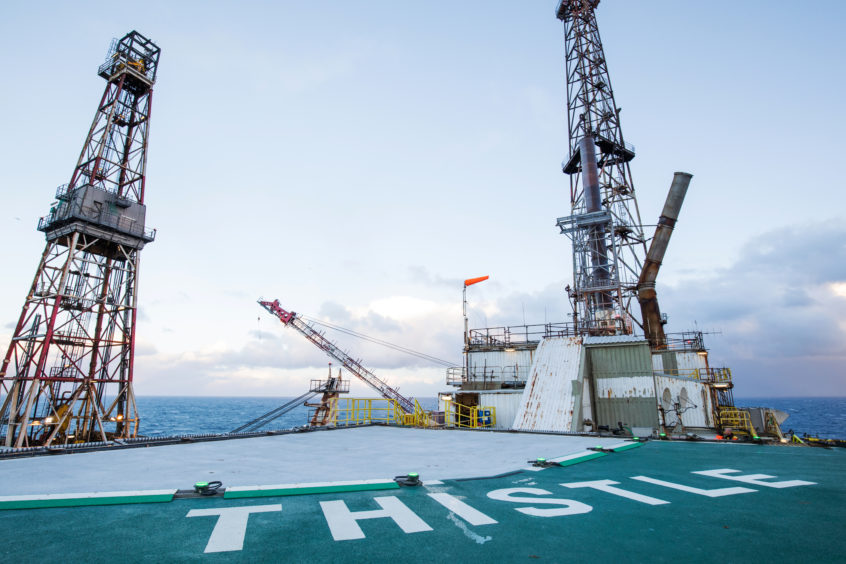
The struggling UK oil and gas sector was dealt another blow on Tuesday as EnQuest confirmed it expected to cut 530 positions.
The company said it had taken “decisive action” to steer itself through the “challenging economic environment”, by launching a six-week consultation with employees.
Trade union boss Jake Molloy said a disaster was “unfolding” in the North Sea and called for government intervention to protect jobs.
The sector has been left reeling by a collapse in crude prices, sparked by a supply glut and a drop in demand brought on by the Covid-19 pandemic.
Earlier on Tuesday, industry body Oil and Gas UK released a report estimating that up to 30,000 oil jobs could be lost over the next 12-18 months, mostly in the supply chain.
Headcount reductions were expected at EnQuest after it called time on a number of North Sea platforms.
EnQuest halted production at the Thistle platform in October after a subsea inspection flagged up a structural fault. More than 100 crew members were airlifted.
And output from the Heather platform was halted last year so that compressors could be repaired, but during the operation, a “small” fire broke out and two crew members were flown to hospital.
EnQuest initially expected to restore production from both Thistle and Heather, but said last month that they would no longer be economic to run.
The firm has also decided to decommission the Alma/Galia fields, served by the EnQuest Producer vessel, less than five years after achieving first oil. Output should stop later this year.
Chief executive Amjad Bseisu recently said those actions would “unfortunately and inevitably” result in fewer staff and contractors.
A source claimed the 530 job losses would be spread across EnQuest’s Aberdeen office, its offshore installations and Sullom Voe Terminal in Shetland, affecting full-time staff members and contractors.
A spokeswoman for EnQuest confirmed the total, but said a specific breakdown by location would not be possible while the consultation is on-going.
She said the company entered into consultation after reviewing spending plans for its assets, factoring in the “prevailing low oil price and global demand”.
“The reduction in operational activity will inevitably lead to resource reductions, although EnQuest is seeking to keep this to a minimum,” the spokeswoman said, adding: “EnQuest expects to reduce the number of roles by 530.”
Mr Molloy, chairman of the Offshore Coordinating Group, a coalition of trade unions, said the industry was on a “cliff edge” and needed help “urgently” or it would not be around long enough to play its part in the energy transition.
He said: “Someone has got to act. This is a disaster for the economy and workers. It needs sorting.”
Recommended for you

